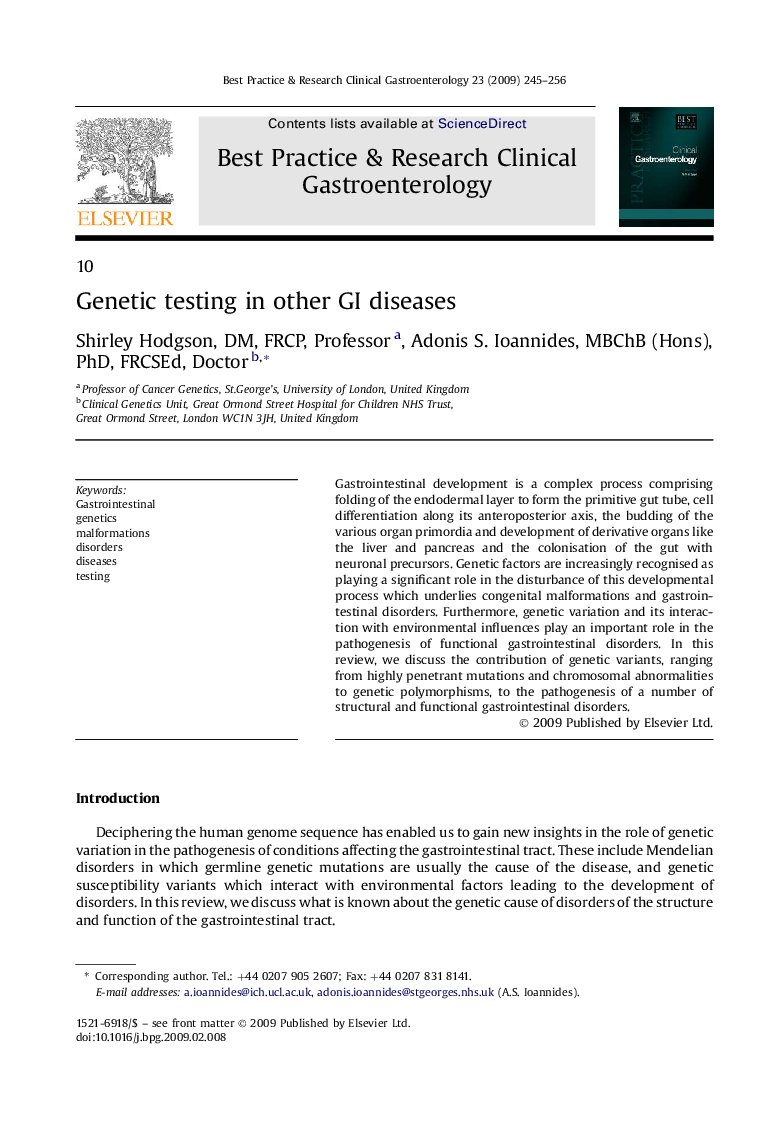| Article ID | Journal | Published Year | Pages | File Type |
|---|---|---|---|---|
| 3254435 | Best Practice & Research Clinical Gastroenterology | 2009 | 12 Pages |
Gastrointestinal development is a complex process comprising folding of the endodermal layer to form the primitive gut tube, cell differentiation along its anteroposterior axis, the budding of the various organ primordia and development of derivative organs like the liver and pancreas and the colonisation of the gut with neuronal precursors. Genetic factors are increasingly recognised as playing a significant role in the disturbance of this developmental process which underlies congenital malformations and gastrointestinal disorders. Furthermore, genetic variation and its interaction with environmental influences play an important role in the pathogenesis of functional gastrointestinal disorders. In this review, we discuss the contribution of genetic variants, ranging from highly penetrant mutations and chromosomal abnormalities to genetic polymorphisms, to the pathogenesis of a number of structural and functional gastrointestinal disorders.
